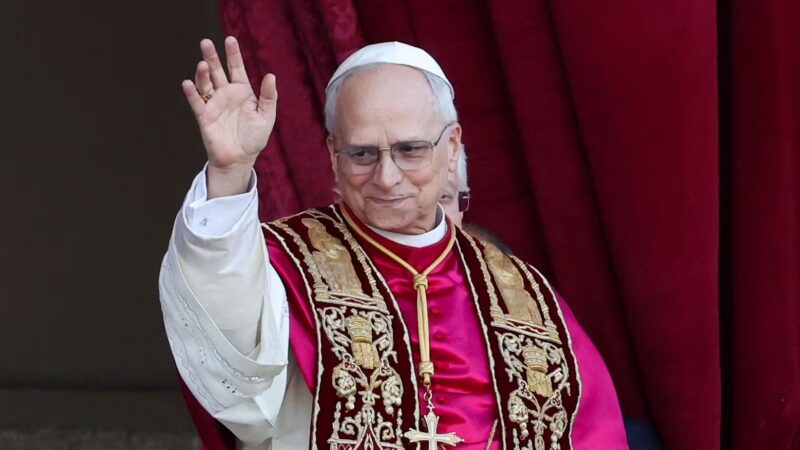In Vatican City, the home of the Roman Catholic Church and among the holiest sites in the Christian world, representatives from the world’s leading technological, legal, academic, and business sectors gathered for the Second Annual Rome Conference on AI, Ethics, and the Future of Corporate Governance. The goal: to discuss and reflect on the ethical challenges posed by artificial intelligence and explore its implications for the future of not only business, but society as a whole. Through roundtable discussions, panels, and fireside chats, industry leaders and experts were given a chance to engage in important dialogue about the rising use of AI in governance and business.
During this conference, the newly elected Pope, Pope Leo XIV, delivered an address framing AI as not only a technological concern but also a moral and spiritual one. He called for attendees to “consider AI within the context of the necessary intergenerational apprenticeship that will enable young people to integrate truth into their moral and spiritual life,” expressing concern about AI’s hindrance on children’s ability to learn and possess an “authentic wisdom” that “has more to do with recognizing the true meaning of life than with the availability of data.”
Arguably, Pope Leo XIV’s address was one of the first major public acts of his papacy to assert the moral authority of the Church on a pressing global issue. While the Vatican wields no formal political power, its ability to guide conscience and shape international norms through soft power is how it has remained one of the most influential institutions in the world.
The 2025 Conference
Founded in 2024 by Wilson Sonsini and Libra Legal Partners, the Rome Conference on AI, Ethics, and The Future Corporate Governance invites some of the biggest industry names. This year’s conference was attended by leaders from Meta, Google, and Open AI in addition to academics from prestigious institutions such as Harvard and Stanford Law.
Key themes of this year’s conference included the transformation of corporate governance, the integration of ethical oversight into AI development, and the importance of public-private dialogue on accountability and human dignity. What differentiated this conference from similar ones was the uniquely religious setting and influence surrounding it. Pope Leo XIV explicitly expressed his and the Church’s “desire to participate in these discussions that directly affect the present and future of our human family.” While technological meetings like this generally sidestep moral dimensions, this gathering explicitly foregrounded language of conscience and purpose.
Why the Vatican and AI?
At first glance, it may seem unlikely that major players in the technology and AI sectors would listen to, or even care about, the opinions of the head of one of the world’s oldest religions. However, the Vatican’s ties to science and ethics have been prominent over the years, with multiple addresses and writings such as Pope John Paul II’s 1991 address to the Pontifical Academy of Sciences, in which he stressed the need for ethical guidance in genetic research.
A particularly impactful moment came in with the release of Laudato Si’, the late Pope Francis’s landmark encyclical on environmental ethics, which encouraged worldwide collaboration in creating sustainable development to face environmental challenges. Laudato Si’ was released just months before the adoption of the Paris Agreement, an international treaty on climate change in which Vatican City participated as an observer state, shaping the moral framing of the negotiations and signaling the Vatican’s active engagement in global climate discourse.
More recently, in the realm of AI, the Vatican led the creation of the Rome Call for AI Ethics in 2020 with the objective of promoting “an ethical sense of shared responsibility among international organizations, governments, institutions and the private sector.” Major corporations such as Qualcomm and Microsoft have become signatories, and although the Call is not legally binding, it provides a valuable moral framework.
The impact of Laudato Si’ and the Rome Call for AI Ethics highlights the Vatican’s ability to influence global policy not through legal authority, but by providing an ethical framework and exerting soft power.
The Moral Voice in the Technological World
This year’s Rome Conference on AI, Ethics, and the Future of Corporate Governance demonstrated that the Vatican continues to wield meaningful soft power in the worlds of science and technology. But as artificial intelligence advances at a staggering pace, a pressing question remains: can the Vatican, or anyone interested in AI ethics, truly keep up? As psychologist and AI researcher David D. Luxton, PhD, observes, “‘AI is moving so fast that it’s difficult to grasp how significantly it’s going to change things.’” When the scale and direction of change are hard to even grasp, how can we form coherent opinions, mobilize conferences, or organize ethical frameworks and guardrails in time to respond?
Though the Vatican was able to assert influence and help shape the adoption of the Paris Agreement, we have yet to see a binding international agreement for AI that matches its scope or force. Without a shared global framework, ethical commitments on AI remain fragmented. Non-binding, unenforceable commitments offer limited impact. The Vatican’s efforts underscore the urgent need to enforce international cooperation before technology outpaces our ability to govern it. The question now is whether, once again, the Vatican can rise to the moment and help facilitate a formal binding agreement as it did in 2015, or whether the acceleration of AI will leave the historic institution and its influence behind.
Featured/Headline Image Caption and Citation: Pope Leo XIV, Image sourced from Heute | CC License, no changes made


